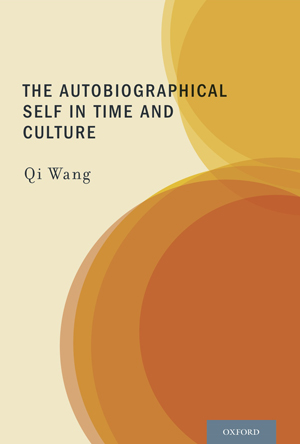Book shows how family, culture shape personal stories
By Karene Booker

The new book “The Autobiographical Self in Time and Culture” (Oxford University Press) combines theory, research, examples and personal anecdotes to convey a message: The stories we remember and tell about ourselves are conditioned by one’s time and culture.
The book traces the developmental, social, cultural and historical origins of the autobiographical self – the self that is made of memories of our personal past and of our family and community. Integrating prominent themes in research and everyday life, it covers such topics as parent-child conversations about the past, the history of autobiography, cultural conceptions of success versus failure, visual perspectives in memory, cultural differences in event segmentation, the cultural significance of “silence” and the research frontier of new technologies, among many others.
“This is the first book to analyze how the form, structure and content of memories reveal the role of culture in autobiography,” said author Qi Wang, professor of human development in the College of Human Ecology.
“The autobiographical self is formed in and shaped by the process of family storytelling, which is situated in a specific cultural and historical context,” Wang said.

“By analyzing parent-child conversations about personal memories in both East Asian and Western cultures, we find that family-reminiscing across cultures serves different functions in defining the self, maintaining social bonding, regulating emotion and directing behavior,” said Wang, who also serves as the director of the Social Cognition Development Laboratory at Cornell and as the associate director of the East Asia Program at Cornell. “And this, in turn, contributes to the construction of an autobiographical self with cultural stance. Ultimately, culture influences both what we remember and what we tell.”
Drawing upon empirical research of cultural and cognitive psychology, “The Autobiographical Self” proposes that memory biases, such as egocentricity, are specific to the Western cultural contexts that prioritize autonomy and self-enhancement goals, and such biases do not apply to other cultural contexts that prize relatedness and self-improvement goals. The book also contrasts the autobiographical writings in ancient and modern times, in East and West, to demonstrate that autobiography is inevitably conditioned by the cultural conception of self that transforms across historical eras. The book concludes with a forward look at the autobiographical self as a product of modern technology.
Wang will discuss her new book in a “Chats in the Stacks” book talk Sept. 17 at 4 p.m. in 160 Mann Library.
Karene Booker is extension support specialist in the Department of Human Development.
Media Contact
Get Cornell news delivered right to your inbox.
Subscribe